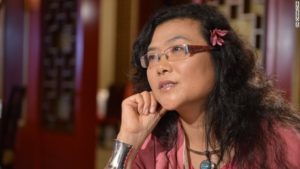However, women still account for less than a quarter of all NPC and CPPCC members. As China inches towards greater female participation in politics, it is being outpaced by many other countries.
The Global Gender Gap Report 2020, which tracks progress towards gender equality, ranked China 106th out of 153 countries surveyed, down three places from the year before. In the latest Women’s Power Index, China was ranked 150th out of 193 UN member states in political parity.
How can this be? China has one of Asia’s highest rates of female participation in the workforce. Furthermore, the Communist Party has long trumpeted gender equality. Chairman Mao famously proclaimed: “Women hold up half the sky.”
When the party took power in 1949, Chinese women were in a miserable position, with low literacy and labour participation rates. The first NPC in 1954 was attended by 147 women representatives, or 12 per cent of all representatives; by 1975, women accounted for 22.6 per cent. Since then, however, female participation in the NPC has hovered at this level.
The roots of the problem of low female political participation lie in the depths of China’s patriarchal culture. Hostile attitudes towards women in public affairs, along with domestic burdens that are traditionally placed on women, prevent rural women from entering politics in villages, which also tend to be more conservative than cities.
More in the South China Morning Post.
Zhang Lijia is a speaker at the China Speakers Bureau. Do you need her at your (online) meeting or conference? Do get in touch or fill in our speakers’ request form.
Are you looking for more political analysts at the China Speakers Bureau? Do check out this list.

No comments:
Post a Comment